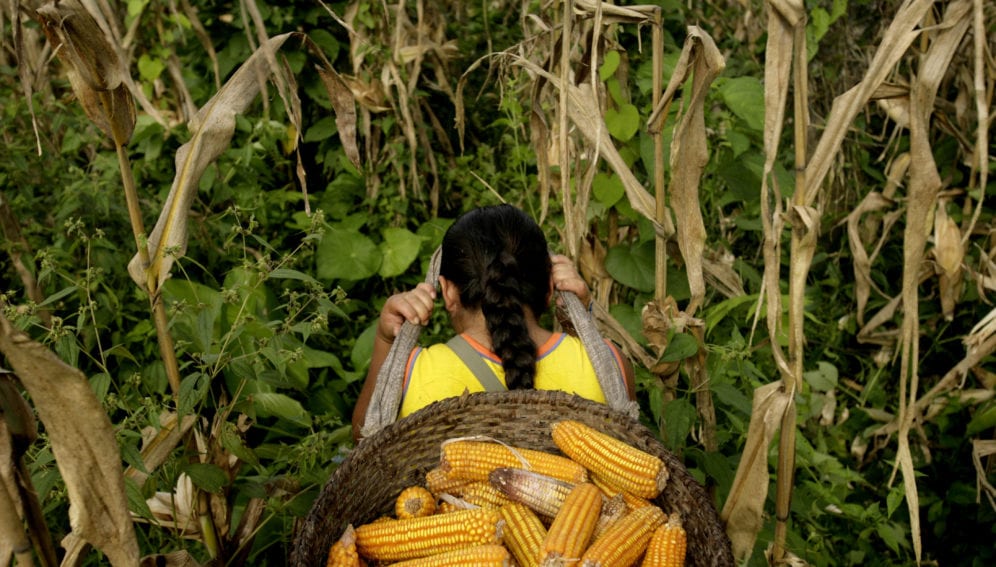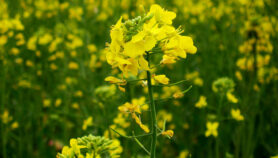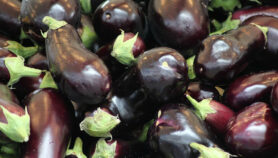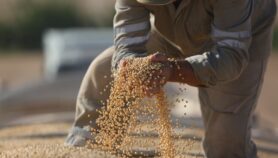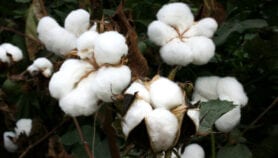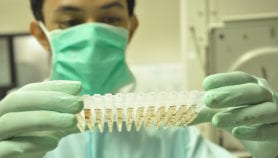By: Paul Icamina
Send to a friend
The details you provide on this page will not be used to send unsolicited email, and will not be sold to a 3rd party. See privacy policy.
[MANILA] The proliferation of “counterfeit” genetically modified (GM) corn seeds in the Philippines is eating into farmers’ profits and posing a threat to the environment, biotechnology experts, government authorities, and industry representatives warn.
According to the International Service for the Acquisition of Agri-biotech Applications (ISAAA), a non-profit, despite the almost 11 per cent expansion in the total area planted to corn, the area under licensed GM corn in the Philippines decreased by 21 per cent last year as some farmers shifted to counterfeit ones or GM corn seeds that have not been approved by the government and is considered illegal by Philippine authorities.
At a press conference during the Global Status of Commercialised Biotech Crops on 26 June, Rhodora Aldemita, director of ISAAA’s global knowledge centre on crop biotechnology (Bt), said the adoption rate of licensed Bt corn went down to 46.5 per cent of the total area planted to corn in 2017 (compared to a 65 per cent increase in 2016) due to “the huge problem of counterfeit seeds”.
Aldemita says the production of fake seeds threatens the effectivity of the technology, besides posing risks to the environment as they have not undergone the rigorous technology approval process of the Philippines' Bureau of Plant Industry (BPI).
The counterfeiters are cheating farmers because fake seeds produce lower yields and require as much insecticide spraying as conventional corn seeds, Aldemita says.
“Unauthorised seeds do not undergo protocols such as insect resistance management or IRM”
Ann Lopez, Department of Agriculture
“It’s a growing concern,” says Ann Lopez, assistant director at the Department of Agriculture’s biotech programme. “Unauthorised seeds do not undergo protocols such as insect resistance management or IRM.”
IRM provides for “refuge” set aside around farms planted with GM crops that prevent or delay the development of borer resistance as the pests are known to develop resistance only in areas totally planted with Bt corn and mate with each other. It is just one of the review and testing protocols that biotechnology firms have to undergo and which could take years without guarantee of approval.
Bt corn has been genetically altered with the bacterium Bacillus thuringiensis (Bt) to provide resistance to the corn borer and for tolerance to herbicides that kill weeds. A study by the College of Economics and Management, University of the Philippines, Los Baños, showed that borer infestation can reduce corn yields by up to 30 per cent.
Gabriel Romero, Monsanto Philippines’ lead for regulatory and scientific affairs, says “fake Bt corn seeds” seeds have the traits of GM corn but have compromised purity. “With these seeds, yields are 30 per cent to 50 per cent lower.”
Romero emphasises that biosafety regulations allow only technology owners and licensed distributors to commercialise Bt corn seeds.
“Unlicensed seeds are sold at half the price of branded seeds but don’t perform as well,” Romero says, pointing out that cheaper seeds are attractive after natural disasters, such as a long dry spells or typhoons, when farmers have insufficient capital to buy genuine GM seeds.
Hautea says that Philippine regulators, even if they catch these unlicensed seed sellers, don’t have adequate legal backing or have strong penalties to deter them. “The legal arena will be a battleground in the future for scientists and companies who would seek stronger protection for their inventions as current patent laws are not fit with scientific advancements.”
ISAAA estimates that fake seeds reduced the Philippines’ net national income from Bt corn farming by US$724 million during the 2003—2016 period.
“Farmers have learned their lessons, and many are not repeat buyers. The BPI has done its best by putting out a list of authorised Bt corn dealers,” Aldemita says.
This piece was produced by SciDev.Net’s Asia & Pacific desk.


